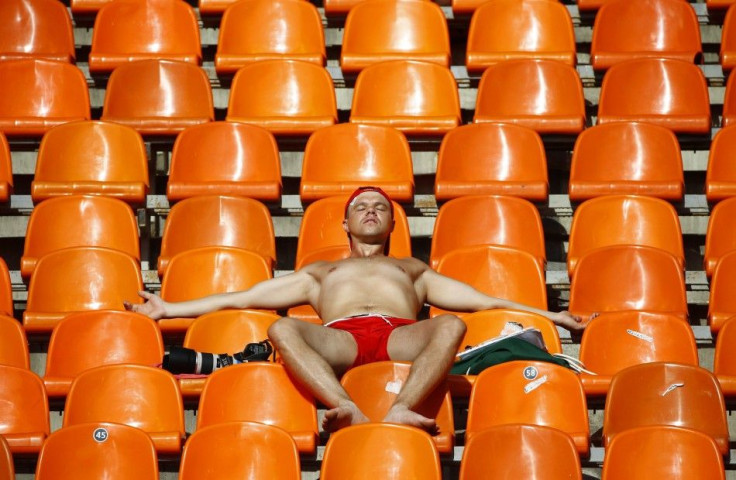Sunlight Is As Addictive As Heroin
An addiction to beta endorphins that are released when exposed to sunlight can be as bad as a heroin addiction, research shows.

There's a reason people want more of that sun tan. The sun's Ultraviolet (UV) rays do not just pleasure the skin but go deeper and pleasure the brain as well. A new study reveals that mice exposed to UV rays were seen to produce a feel good hormone.
Steven Feldman, researcher on public health and skin diseases at the Wake Forest University School of Medicine in Winston-Salem, North Carolina, told Science News, "The study also may help explain why people flock to beaches and coasts for relaxation." Going deeper into the other aspects of the study, he specified that the newly proven facts about sunlight are what make caves unpopular among tourists. "Do you know why they put [Disney World] in Florida and not in Minnesota, where it's cooler?" he asked.
People are aware of the dangers of UV rays, the rate of skin cancer is increasing, yet people risk their lives and their health for a tan. David Fisher, an oncologist at the Massachusetts General Hospital in Boston, was keen on knowing the reason for this.
Fisher and his colleagues conducted a study on mice, which were shaven and exposed to the same amount of UV light as a normal fair-skinned person would for 20 to 30 minutes in the Florida sun. In just a week of the treatment, the mice were seen to have a higher molecule level in their blood called beta endorphin. This hormone is similar to drugs like heroin and opium; they activate pleasure processes in the brain. Beta endorphin also ends up in the blood.
After the treatment had stopped, the mice showed signs of craving and addiction. On provision of Naloxone, a drug given to heroin addicts to block the places in the brain that triggers these pleasure feelings, the drug immediately triggers off withdrawal symptoms among heroin addicts. Surprisingly, the mice experienced withdrawal symptoms of the same sort, their teeth were chattering and body shaking.
The new data, though fascinating, does not prove if the mice had become addicted to UV light. "Addiction means craving, loss of control and tolerance," Adinoff told Science News. And the new study "didn't look at any of those things."




















